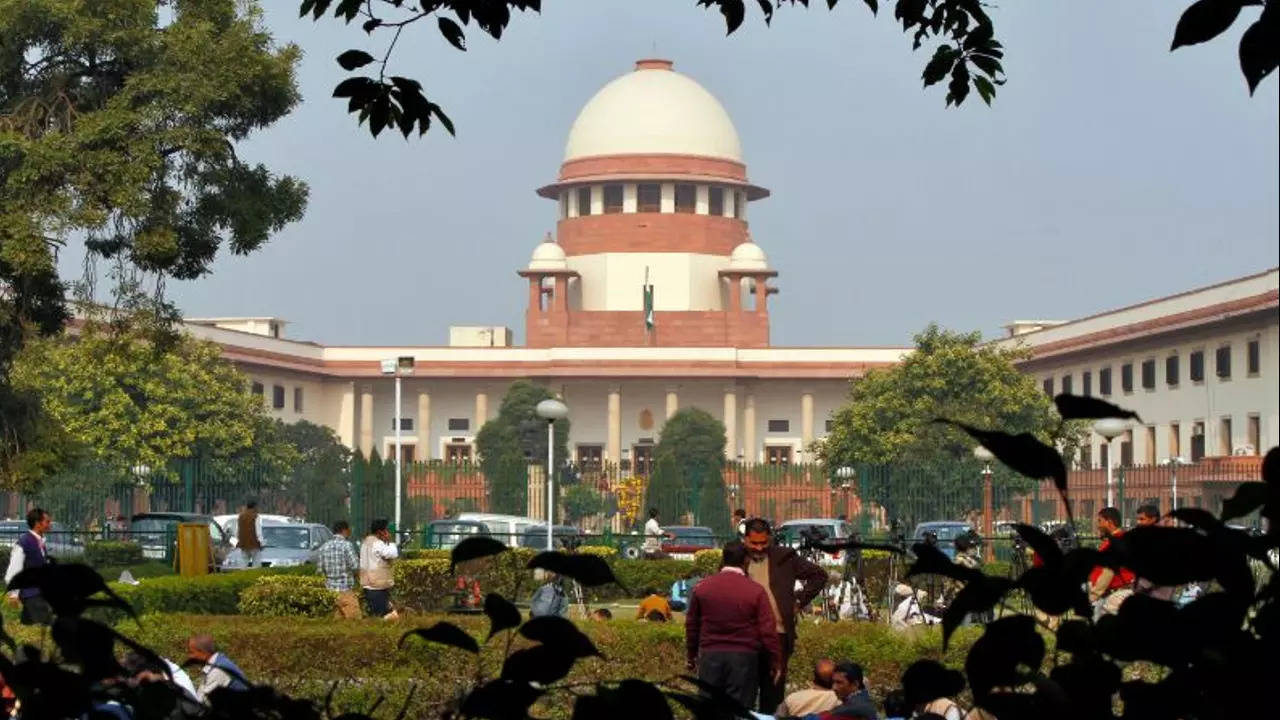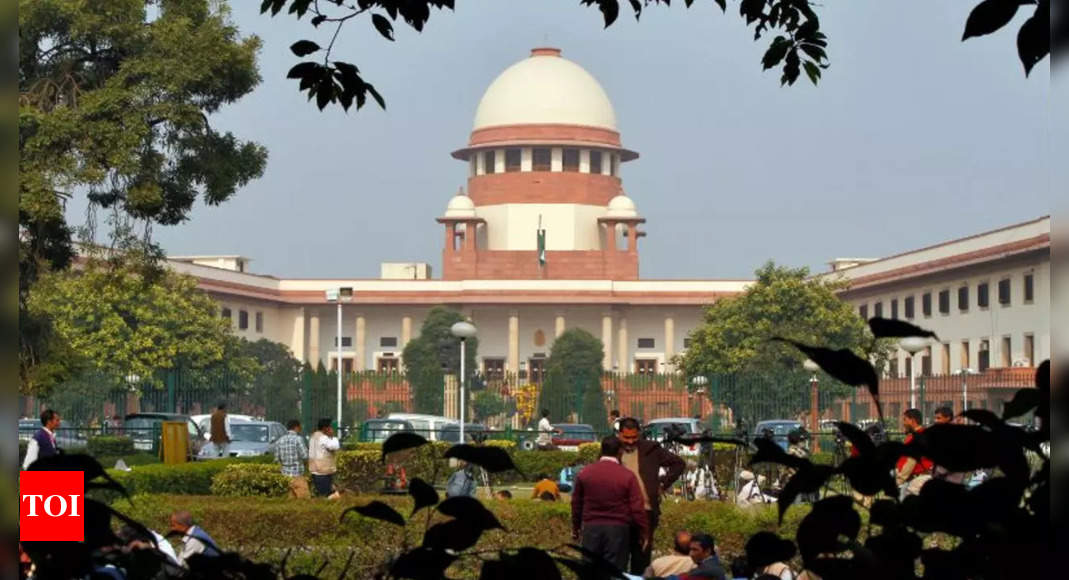
NEW DELHI: Extrajudicial confession by its very nature is a “weak piece” of evidence and it may be used as a corroborative piece of evidence in tandem with substantive evidence, the Supreme Court said on Tuesday while acquitting a man who was convicted in a 1998 murder case.
The apex court allowed an appeal filed by the man challenging the verdict of the Punjab and Haryana High Court which had affirmed the trial court’s May 1999 order convicting and sentencing him to life imprisonment.
The prosecution alleged that the appellant had in June 1998 murdered a man at a cinema hall in Bhiwani as he bore a suspicion that the victim was involved in illicit relations with his wife.
A bench of Justices B R Gavai and Sandeep Mehta noted that the prosecution’s case was primarily based on the testimonies of two witnesses — the victim’s brother and another person who claimed that the accused had made a confession before him.
Referring to the evidence in the case, the bench said both these witnesses fall within the category of “wholly unreliable witnesses” and it would be unsafe to place reliance on their evidence so as to affirm the guilt of the accused.
Dealing with the purported extrajudicial confession made by the accused to a witness, the bench said it was contradicted by the evidence of a defence witness.
“Even otherwise, extra judicial confession by its very nature is a weak piece of evidence. It may be used as a corroborative piece of evidence in tandem with substantive evidence,” the bench said.
“In wake of the discussion made above (in the judgement), we have no hesitation in holding that the prosecution failed to bring home the charge and establish the guilt of the accused appellant beyond reasonable doubt,” it said.
The bench noted that the incident had taken place around 11:30 a.m. and the victim’s brother had admitted in his cross-examination that the body was lifted from the spot at about 4 p.m.
It said there cannot be any doubt that the victim’s brother could not have decided at the first blush that the deceased had expired as a result of a knife blow.
“The natural reaction expected from a brother in such a situation would have been to take immediate steps for taking the victim to the hospital so as to save his life,” it said, adding the victim’s brother did not make any such attempt, and in this background, his presence at the crime scene was doubtful.
The apex court, which quashed the verdicts of the high court and the trial court, acquitted the appellant.
The apex court allowed an appeal filed by the man challenging the verdict of the Punjab and Haryana High Court which had affirmed the trial court’s May 1999 order convicting and sentencing him to life imprisonment.
The prosecution alleged that the appellant had in June 1998 murdered a man at a cinema hall in Bhiwani as he bore a suspicion that the victim was involved in illicit relations with his wife.
A bench of Justices B R Gavai and Sandeep Mehta noted that the prosecution’s case was primarily based on the testimonies of two witnesses — the victim’s brother and another person who claimed that the accused had made a confession before him.
Referring to the evidence in the case, the bench said both these witnesses fall within the category of “wholly unreliable witnesses” and it would be unsafe to place reliance on their evidence so as to affirm the guilt of the accused.
Dealing with the purported extrajudicial confession made by the accused to a witness, the bench said it was contradicted by the evidence of a defence witness.
“Even otherwise, extra judicial confession by its very nature is a weak piece of evidence. It may be used as a corroborative piece of evidence in tandem with substantive evidence,” the bench said.
“In wake of the discussion made above (in the judgement), we have no hesitation in holding that the prosecution failed to bring home the charge and establish the guilt of the accused appellant beyond reasonable doubt,” it said.
The bench noted that the incident had taken place around 11:30 a.m. and the victim’s brother had admitted in his cross-examination that the body was lifted from the spot at about 4 p.m.
It said there cannot be any doubt that the victim’s brother could not have decided at the first blush that the deceased had expired as a result of a knife blow.
“The natural reaction expected from a brother in such a situation would have been to take immediate steps for taking the victim to the hospital so as to save his life,” it said, adding the victim’s brother did not make any such attempt, and in this background, his presence at the crime scene was doubtful.
The apex court, which quashed the verdicts of the high court and the trial court, acquitted the appellant.
Source link

